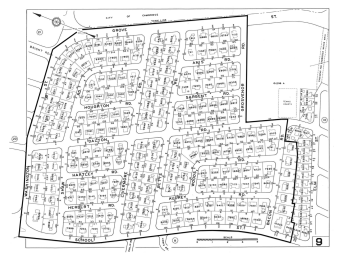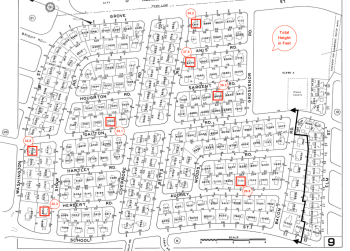Six citizens’ petitions ranging from a restriction on how tall a new house can be built, a slew of financial transparency articles and holding a non-binding referendum on solar power pricing will be before the annual Belmont Town Meeting in May.
The petitions were approved by Town Clerk Ellen Cushman before the closing of the Town Meeting Warrant on Monday, March 2, having secured at least 10 signatures from eligible voters.
One article has been in the news since January, as the Belmont Citizens for Responsible Zoning is seeking a one-year freeze on the construction of so-called “McMansions” in the neighborhood adjacent to the Grove Street Playground in the Shaw Estates neighborhood.
Four articles deal with financial reporting and why important opinions before Town Meeting are made. Jim Williams, a candidate for Board of Selectmen, said the “overriding purpose” of the language is to improve “the transparency around articles in the Warrant and thereby … improve the quality of Town Meeting decision making.”
- Require the Town Administrator to issue to Town Meeting Members a quarterly Free Cash account report including the amounts received and disbursed since the last report and the sources and uses of the funds received and disbursed.
- Require the Board of Selectmen, the Warrant Committee and the Capital Budget Committee – when they issue opinions on Town Meeting articles – to reveal the rationale for their recommendations in writing at the least one day in advance of the article being taken up.
- The Town Administrator will now maintain a 30-year “steady state” projection model of the town’s budget.
- The creation of a formal Risk Management Function in the Town Administrator’s office reporting on both the long- and short-term risks and opportunities identified to exist in the operations of the town’s governmental, school and enterprise activities.
Finally, a group of solar power advocates is seeking Town Meeting approval to place a non-binding referendum before voters to gauge the community’s support for either the newly-created buy back pricing program approved by the Light Board or one which provides a greater payback to households using solar energy.

